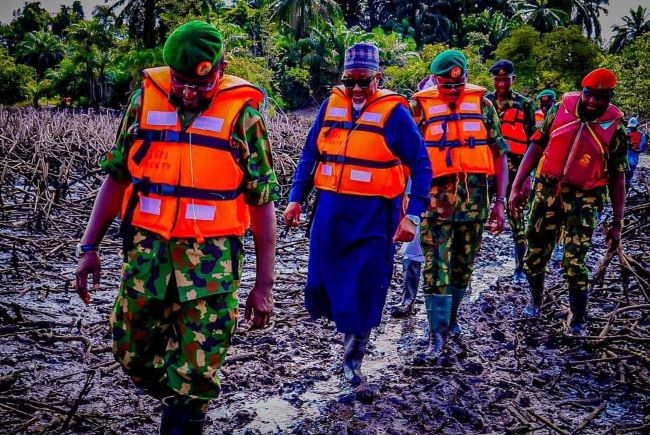The Ogun State Government plans to create a special agency to monitor the environment. This new agency will make sure people follow sanitation rules, protect public infrastructure, and help stop environmental problems in the state.
This was shared by the state’s Commissioner for Environment, Ola Oresanya, during a live radio interview on Eagle 102.5 FM in Ilese-Ijebu.
According to Oresanya, the agency is part of a bigger plan to prevent flash floods and other environmental issues. This is especially important now, as Nigeria’s weather agency, NiMet, has warned that Ogun is among 16 states likely to face serious flooding.
He said the government already has a task force, rules, and laws in place. The next step is to create strong systems for enforcement. This includes buying enforcement vehicles (like Black Marias), hiring staff, and focusing on keeping the environment clean and public infrastructure in good shape.
He also mentioned that the state government began taking action after early flood warnings in February, and another alert from NiMet in April.
All 20 local government areas have been told to share this information quickly with community groups and residents, down to individual neighborhoods.
The commissioner said the focus has now moved from public awareness to real action, with several flood prevention projects already happening in places that usually get flooded.
Some of the areas most at risk include Alamutu in Abeokuta, Shokori River, Orudu River, Oke-Ofa, Iju, Itaoshin, Olomore, Oparo, Banku Area, Odo Musa, and Alakonga. Ifo Local Government Area is also a major concern.
In Ijebu-Ode, he said erosion is a growing problem, but engineering projects are ongoing to control it.
Oresanya talked about a major event in 1984, when a tremor hit Ijebu-Ode. It dried up underground water, weakened the soil, and caused sinkholes and landslides.
He said that tremor made Ijebu-Ode an “ecological risk zone,” and today, there are 16 active erosion sites in the area.
He called the situation not just a state issue, but a national emergency, which is why Ilese is getting special attention for direct intervention.
Talking about funding, the commissioner said the Ministry of Environment doesn’t usually get money directly from the state budget.
Instead, they rely on partnerships with federal ecological agencies for funding and work with other groups to carry out the projects. The ministry only supervises the projects.
He explained, “We don’t get money like other ministries. We have to keep asking the federal government to include our projects. It’s hard, but it forces us to be creative.”
Oresanya reflected on his work, saying that he holds himself to high standards. He believes in only promising what he can achieve.
He said, “You have to be creative with or without funds. Don’t promise what you can’t do. Know your limits and get it done.”
On waste management, the commissioner said it’s not just about cleanliness but also about safety and public security.
He revealed that dangerous and even shocking items are sometimes found in illegal dumps, including dead bodies.
“Your waste says a lot about you,” he added. “Having your own waste bin helps your community understand who lives there.”
He encouraged people to be more responsible with their waste and take ownership of what they throw out.
He said if waste isn’t collected for a long time, people can take legal action against the local government or the state waste management agency.
However, he said Ogun won’t copy Lagos State’s policy on banning single-use plastics.
“Our strategy is different,” he explained. “No matter the material—plastic or paper—it must not end up on the streets.”
He added that the state is working on turning waste into fuel, which will help solve energy problems, create jobs, and reduce environmental damage.
The commissioner also condemned people who dig into roads and pavements without government approval. He urged others to report such activities.
He said some health centers had been damaged by floods in the past, and the health center in Ilese-Ijebu is now being checked for urgent repairs or relocation.
Oresanya encouraged residents to always report environmental problems and stay alert.
He said, “If you see something, say something. The government can’t be everywhere, but the people are. We need your help to protect our environment.”


